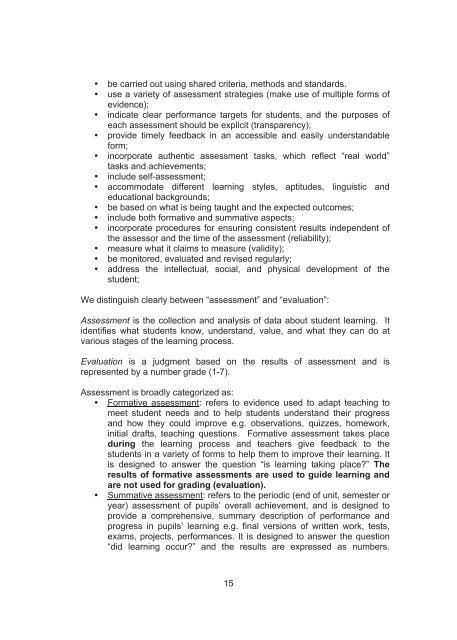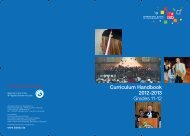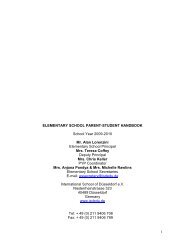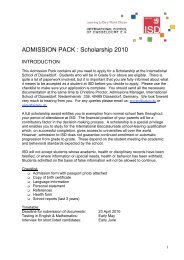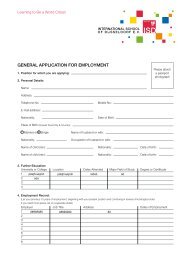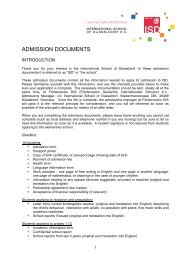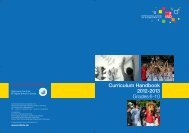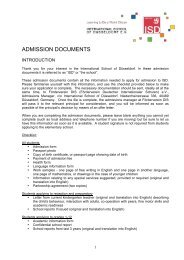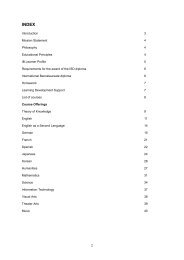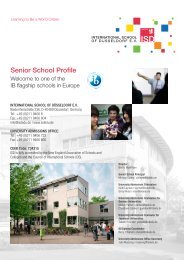SENIOR SCHOOL STUDENT - PARENT HANDBOOK
SENIOR SCHOOL STUDENT - PARENT HANDBOOK
SENIOR SCHOOL STUDENT - PARENT HANDBOOK
You also want an ePaper? Increase the reach of your titles
YUMPU automatically turns print PDFs into web optimized ePapers that Google loves.
• be carried out using shared criteria, methods and standards.<br />
• use a variety of assessment strategies (make use of multiple forms of<br />
evidence);<br />
• indicate clear performance targets for students, and the purposes of<br />
each assessment should be explicit (transparency);<br />
• provide timely feedback in an accessible and easily understandable<br />
form;<br />
• incorporate authentic assessment tasks, which reflect “real world”<br />
tasks and achievements;<br />
• include self-assessment;<br />
• accommodate different learning styles, aptitudes, linguistic and<br />
educational backgrounds;<br />
• be based on what is being taught and the expected outcomes;<br />
• include both formative and summative aspects;<br />
• incorporate procedures for ensuring consistent results independent of<br />
the assessor and the time of the assessment (reliability);<br />
• measure what it claims to measure (validity);<br />
• be monitored, evaluated and revised regularly;<br />
• address the intellectual, social, and physical development of the<br />
student;<br />
We distinguish clearly between “assessment” and “evaluation”:<br />
Assessment is the collection and analysis of data about student learning. It<br />
identifies what students know, understand, value, and what they can do at<br />
various stages of the learning process.<br />
Evaluation is a judgment based on the results of assessment and is<br />
represented by a number grade (1-7).<br />
Assessment is broadly categorized as:<br />
• Formative assessment: refers to evidence used to adapt teaching to<br />
meet student needs and to help students understand their progress<br />
and how they could improve e.g. observations, quizzes, homework,<br />
initial drafts, teaching questions. Formative assessment takes place<br />
during the learning process and teachers give feedback to the<br />
students in a variety of forms to help them to improve their learning. It<br />
is designed to answer the question “is learning taking place?” The<br />
results of formative assessments are used to guide learning and<br />
are not used for grading (evaluation).<br />
• Summative assessment: refers to the periodic (end of unit, semester or<br />
year) assessment of pupils’ overall achievement, and is designed to<br />
provide a comprehensive, summary description of performance and<br />
progress in pupils’ learning e.g. final versions of written work, tests,<br />
exams, projects, performances. It is designed to answer the question<br />
“did learning occur?” and the results are expressed as numbers.<br />
15


